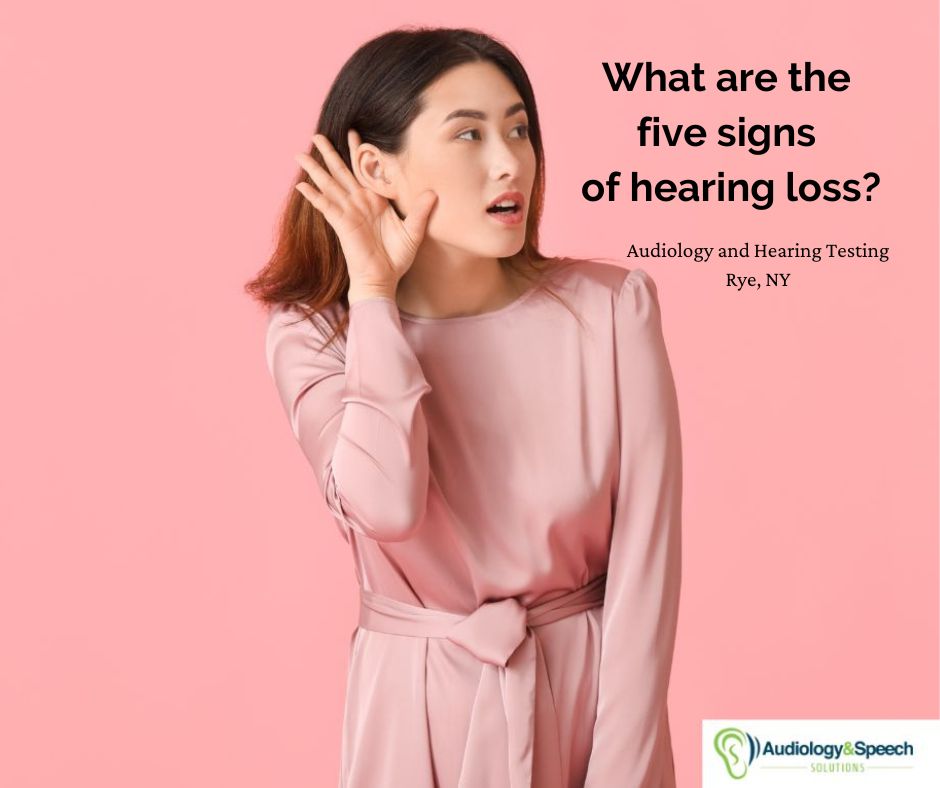Anyone can experience signs of hearing loss at any point in their lives. Hearing loss can be congenital or acquired through sudden or long-term noise exposure. In essence, a number of things can lead to hearing loss.
Noise, aging, illness, and inheritance can all contribute to hearing loss. Sensorineural hearing loss, conductive hearing loss, and mixed hearing loss are the three fundamental types of hearing loss.
Read on to learn more about the five signs of hearing loss.
Tinnitus
Tinnitus, also referred to as ringing in the ears, affects a significant portion of individuals with hearing loss. This typically happens when a person is subjected to sudden exposure to extremely loud sounds, such as a bomb explosion or a gunshot.
Loud noise can make your ears ring, hiss, or roar (a condition referred to as tinnitus). Tinnitus may go away after a while, albeit not always. Tinnitus may be a precursor to hearing loss, so keep an eye out for the signs and get medical attention from an audiologist if you feel anything unusual with your hearing.
Muffled hearing
Even if the person you are talking to or the source of the sound is close by, you might notice that noises and voices seem to be coming from a greater distance. If this occurs, you might find the need to request the person you’re speaking to repeat what they’ve said or turn up the TV, radio, or speaker level to hear better.
Muffled hearing may also be a symptom of congestion brought about by a common cold, flu, or allergies. However, if the muffled hearing is prolonged and does not seem to get better even with medications, it’s best to get your hearing checked to rule out any underlying medical condition.
Listening exhaustion
To detect and understand sound, the brain and ears collaborate. Any inconsistencies or gaps in the transmission of sound information from the ears to the brain will cause hearing trouble. Due to the brain having to process information twice as fast as those with untreated hearing loss, listening fatigue may occur.
Your brain is trying to tell you that it needs a rest. Listening exhaustion strikes those with hearing loss earlier—and with fewer stimuli—than those with normal hearing because of the added difficulty of trying to hear. In actuality, early hearing loss manifests as recurrent or worsening episodes of listening fatigue.
Less interest in social interactions
When hearing becomes difficult, people may choose to withdraw and isolate themselves rather than participate in social, professional, or business circumstances where interaction is essential.
People with hearing issues may avoid social situations because they feel uncomfortable, apprehensive, or uneasy about their communication and hearing limitations. With today’s technology, this shouldn’t be an issue because cochlear implants and hearing aids are available to enable those with hearing loss to live better lives.
Difficulty following group conversations
There are numerous conversations going on at once during gatherings, meetings, and concerts. You may need to have your hearing tested if you find it difficult to follow the conversation and hear incomprehensible blends of noises rather than words and sentences.
Try to determine what kinds of noises you have trouble hearing if you think you might have a hearing issue. Do you have trouble hearing the voices of women and children? Or do you lose out on low-pitched sounds like a car engine humming or a thunderstorm’s rumble? These little specifics are significant because they can be used to determine the sort of hearing loss you are now experiencing.
Experiencing Signs of Hearing Loss?
If you experience sudden hearing loss, get medical attention right away, most especially if only one ear is affected, you have a fever, or a migraine that goes with the sudden loss of hearing in one or both ears. This is considered a medical emergency and needs to be addressed immediately.
Audiologists and Hearing Aids in Rye, NY
Are you looking for reliable and compassionate audiologists in Rye, NY? Schedule an appointment at Audiology and Speech Solutions.
We look forward to helping you with any of your hearing and speech concerns.

